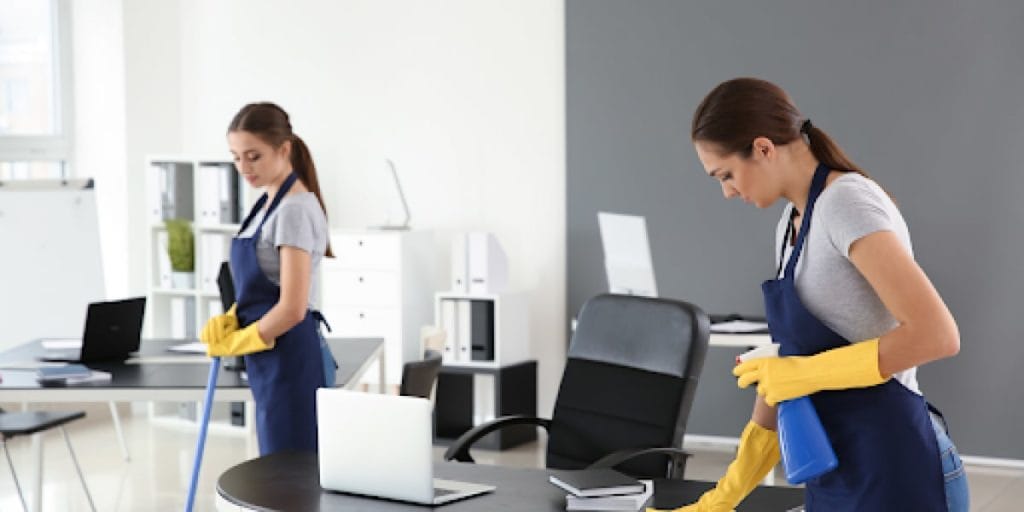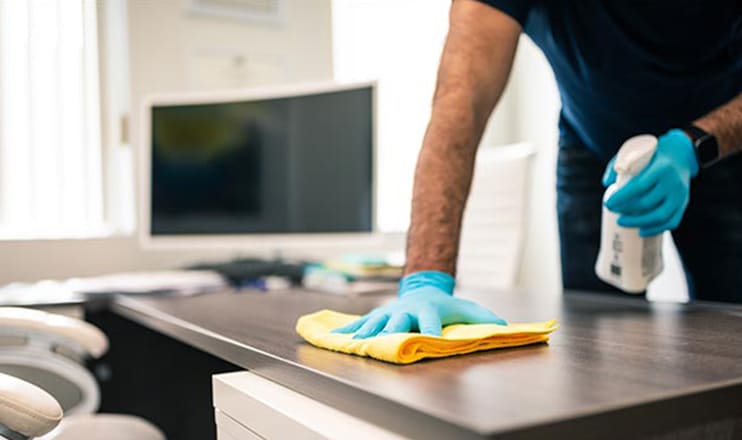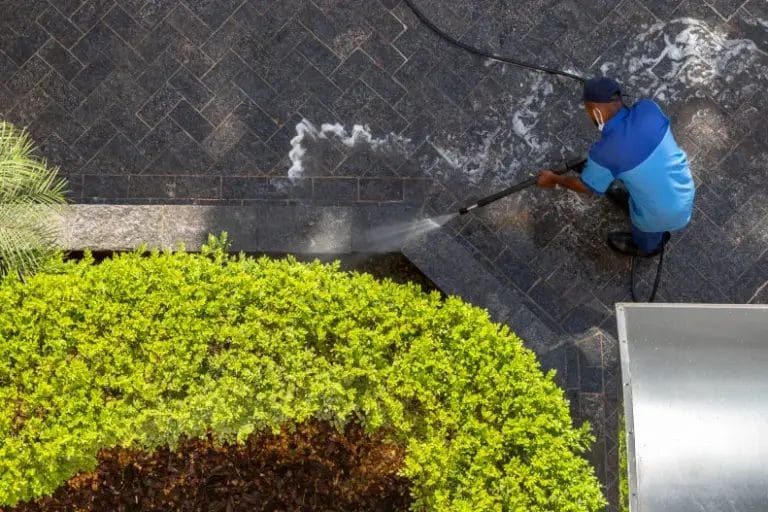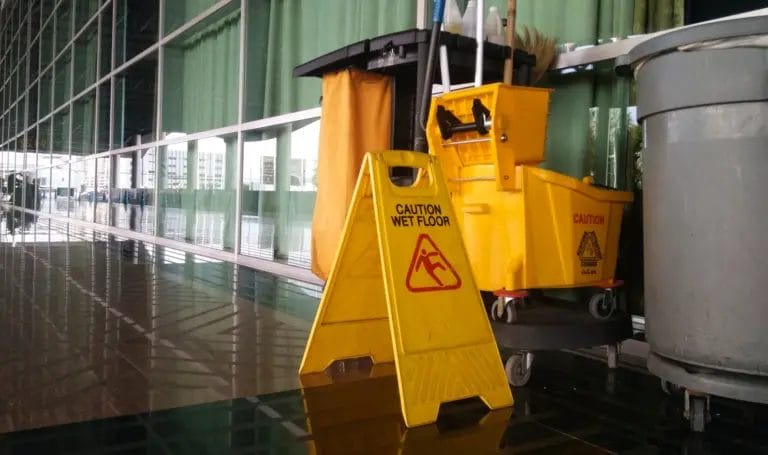- Last Updated:
- 11/14/2024
- Allison Kirschbaum
For cleaning business startups, navigating the maze of expenses can feel like trying to mop up a spilled bucket of water with one ply tissue. But don’t worry! We’re here to scrub away the uncertainty and unveil the true average cost to start a cleaning business. From planning to buying equipment, we’ll break down the real expenses of starting your cleaning business. So, let’s roll up our sleeves and get started!
How Much Money Do I Need to Start a Cleaning Business?
According to The Janitorial Store, startup costs for cleaning business franchises can vary significantly. Some franchises may start as low as $3,500, while others can soar as high as $15,000. These costs typically cover initial expenses such as equipment, supplies, legal fees, insurance, marketing, staffing, and operational costs.
However, it’s important to note that these figures are estimates, and actual costs may vary depending on factors such as location, business size, and service offerings. By understanding the range of potential expenses and budgeting accordingly, you can set your cleaning business up for success from the beginning.
Factors to Consider in the Average Cost to Start a Cleaning Business
Embarking on your cleaning business journey requires more than just elbow grease and a trusty mop. Let’s delve into the nitty-gritty of what it takes to get your venture off the ground and shining bright.
1) Planning and Research
Estimated cost: Free to $100
Before you jump into the cleaning game, you need a game plan!
Creating a Business Plan
Before you grab your dustpan, it’s time to map out your path to success. Crafting a solid business plan will help you navigate through the dust bunnies of entrepreneurship.
Additional Costs Associated with Planning and Research
As they say, “measure twice, cut once.” Factoring in costs for market research, competitor analysis, and feasibility studies ensures you’re not cleaning out your wallet before you’ve even started.
2) Legal and Administrative Costs
Estimated cost: $100–$800
Getting your cleaning business up and running involves jumping through a few hoops and getting through some red tape. Here are some legal and administrative costs to consider:
Business Registration and Licensing
Once you’ve found the perfect name for your cleaning business, it’s time to get registered and make it official with your state. Getting the green light from local authorities is like getting the thumbs-up to start cleaning. It shows you’re legit and ready to start cleaning. Cleaning business license costs vary depending on where you’re based and what services you offer.
Vendor License
You’ll need a vendor license to operate your cleaning business legally. This license is important for tax purposes and allows you to run your business legally. Once you’ve decided on your business name, you’ll need to apply for a vendor’s license.
Optional Trademark
Consider trademarking your business name to protect it from being used by others. This can be done through the U.S. Patent and Trademark office for a fee of $375.
EIN and Bank Account
Obtain an EIN (Employer Identification Number) from the IRS for tax purposes. This is free to obtain. Additionally, open a separate bank account for your cleaning business to keep your personal and business finances separate.
3) Creating a Website
Estimated cost: $250–$10,000
Having a website is like having a sparkling digital storefront – essential for any cleaning business looking to shine. Here’s what you need to know:
Domain Name
Before you can build your digital empire, you’ll need a domain name – like stellarclean.com or sparklepros.net. Think of it as staking your claim in the vast online landscape. You can grab your domain name from GoDaddy or Google Domains for about $9–$15 a month.
Website Creation
Once you’ve secured your digital real estate, it’s time to build your website. You can go the DIY route with user-friendly platforms like Wix, WordPress, GoDaddy, or Squarespace. Or, if you prefer to leave it to the pros, you can hire someone to create your website for you. Be prepared to shell out anywhere from $1,000–$10,000 for their expertise. If you’re a DIY enthusiast looking to save some cash, you can expect to pay around $10–$20 per month for website hosting.
4) Gathering Cleaning Supplies
Estimated cost: $2,000–$20,000
Without the right cleaning tools and supplies, even the mightiest cleaners would struggle to battle the grime. Here’s what you need to know:
Shopping for Supplies
To tackle dirt and dust like a pro, you’ll need to gather your cleaning supplies. Start by scouring wholesale websites for bulk discounts to keep costs down. Whether you’re a window warrior armed with squeegees or a house hero wielding mops and toilet cleaners, plan on investing $2,000–$10,000 to kickstart your cleaning crusade.
Company Vehicle
No cleaning champion would be complete without a trusty steed to transport their supplies from battle to battle. So, consider investing in a designated company vehicle! Whether you opt for a sleek van or a compact car with your company name emblazoned on the side, expect to pay anywhere from $5,000–$20,000 to ride in style.
5) Cleaning Business Insurance and Bonds
Estimated cost: $455
Ensuring your cleaning business is protected is like adding an extra layer of polish to your business plan – it’s essential for a sparkling start. Here’s what you need to know:
The Importance of Insurance
Cleaning business insurance and bonding is ready to swoop in and save the day if disaster strikes. Whether it’s a shattered window or a stained carpet, having the right insurance coverage means you can scrub away worries without breaking the bank.
To learn more about cleaning insurance, check out the following resources:
Insurance Canopy
Insurance Canopy offers affordable and top-notch cleaning business insurance and bonds tailored to fit your needs like a perfectly fitted glove. For just $26.67 a month or $320 a year, you can enjoy the peace of mind that comes with knowing your business is covered.
Plus, with janitorial bonds starting at $134 per year, you can add an extra layer of protection to your cleaning fortress. Check out this blog to discover how to find the best cleaning business insurance for your needs.
6) Marketing Your Business
Estimated cost: $500–$1,000
Marketing your cleaning business is like sprinkling a little fairy dust – it’s how you make your business shine. Here’s what you need to know:
Why Marketing Matters
Marketing and advertising are essential for attracting new customers and conjuring up more business – the more you promote, the more clients you’ll bring to your business. While word of mouth can work wonders, don’t underestimate the power of social media. Create a page on Facebook and Instagram, and sprinkle them with consistent content to build a loyal following and spread the word about your cleaning business.
Budgeting for Marketing: Investing in Your Cleaning Quest
Most small businesses dedicate around 1% of their revenue to marketing – it’s like investing in a treasure map to unlock new cleaning adventures. If you’re aiming to rake in $50,000, budget around $500 for marketing.
Alternatively, you can enlist the help of a marketing professional to work their magic or try your hand at DIY marketing to save some coin.

FAQs About the Average Cost to Start a Cleaning Business
How long does it take to start a cleaning business?
The timeline can vary depending on factors like your location, the size of your operation, and how quickly you can gather your cleaning supplies and get your paperwork sorted. While some entrepreneurs can launch their business in as little as a few weeks, others may take a couple of months to get everything in order. Patience is key – just like waiting for a freshly mopped floor to dry, good things come to those who wait.
How do I set competitive prices for my cleaning services?
To find our how to price your cleaning services, start by researching what other cleaning businesses in your area are charging and take note of the services they offer. Consider factors like the quality of your work, the types of services you provide, and your overhead costs.
What type of insurance do I need for my startup cleaning business?
Protecting your cleaning business with the right insurance is essential. At the very least, you’ll want to invest in general liability insurance to cover any accidents or damages that may occur while you’re on the job. Depending on the size and scope of your business, you may also need additional coverage like workers compensation insurance or commercial auto insurance.
Sweep Away Worries With Insurance Canopy!
Starting a cleaning business requires careful planning, investment, and protection. With Insurance Canopy, you can safeguard your business against unforeseen challenges and ensure a sparkling start. Don’t let worries tarnish your dreams – invest in peace of mind! Complete your cleaning business insurance application today.





